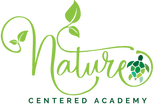As a coach and teacher, we train our students about what it means to stay in our own business – especially when it comes to coaching clients. Byron Katie says, “There are three kinds of business: my business, your business and God’s business.” I often follow that quote up with the question, “Who’s business are you in?”
When we’re in someone else’s (or God’s) business, we are assuming we know better how to live their lives for them than they do for themselves. Really icky territory chalk full of ego…AND it can be super enticing if we aren’t mindful of it. Why? Because it feeds the ego’s need to feel special and superior.
I fell into this trap this week. On an afternoon walk with my dog, Tucker, I noticed a small hummingbird on the sidewalk. At first I thought it was a leaf the size of a grape, brown and unmoving. Intuitively, I backtracked to a tree and tied up my dog so I could get a closer look. As I slowly approached, I noticed its beak was shorter and it still had some white downy feather fluff on its belly. It didn’t fly away, so I crouched and picked it up.
“You shouldn’t be on the sidewalk, Little One,” I said. “You’ll get squashed.”
It flew a few feet and nose-dived into the grass with its wings sprawled out. I picked it up again, and it repeated its awkward landing. I stood nearby and called my vet’s cell number. She didn’t pick up, so I left a voicemail. While I waited for a return call, I scanned the nearest tree’s branches for where the baby’s nest might be but to no avail.
After ten minutes, I called my uncle (who lives a few blocks away) and asked him to walk Tucker home so that I could tend to the bird. Mama hummingbird hovered nearby as I flowed Reiki to the chick.
Unsure of what to do and fearing to leave the bird to the neighborhood cats or other predators, I called my vet’s office. The receptionist told me to bring the bird to the Wetlands Wildlife Rehabilitation Center. I cradled the chick in my hands and walked it home, where I placed it in a bucket and laid a towel over the top. I drove it to the center, where the animal intake receptionist informed me they don’t take hummingbirds. Instead, she gave me a number for a hummingbird specialist.
Once I returned to the car, I called the specialist. She asked me a few questions and for me to text her a picture of the hummingbird chick. She then promptly informed me that I was a bird-napper. She replied to my text with a chart to follow from here on out.

“It’s a fledgling learning to fly,” she said. “It is kind of like riding a bike, and a very important and vulnerable process for a bird that you just interrupted.”
“Oh no,” I said. “I was just trying to help it.”
“Well, next time, don’t.” She was kind but stern. “Mama bird will continue to feed it as it learns to fly. She can’t do that if you’ve interfered.”
“What should I do?” I asked.
“Can you return it to where you found it? And are you available to watch it for the next hour?”
“Yes.”
“Ok, make sure you put it back as close to where you found it as long as it’s a safe, no-traffic spot. Mama won’t feed it if there are people or animals around because she won’t want to alert predators to where its hidden.”
“Ok.”
“Now this is the important part.”
“Ok.”
“You need to be as far away from the hummingbird as you can that allows you to watch and see if mama has found it and will feed it,” she said. “You need to be far enough away that mama hummingbird thinks it’s safe to approach and feed it. The baby should chirp and its mama will hear it. If she feeds it in the next hour, you’ll leave it and it will be fine. This will happen quickly, though, so you need to actively watch. If she doesn’t feed it in the next hour, it won’t survive the night and you’ll need to bring it to me to feed it.”
“Got it.”
“It’s 4:45 now. Call me at 5:45 if the baby hasn’t been fed by its mama.”
I drove the bird back to where I found it and carefully placed it in a crux of a tree about three feet off the ground. I walked about thirty feet away and sat on the grass to watch and wait. As I did, I noticed a hummingbird about the same size flitting around. Based on size and that it stayed within ten feet of that tree, it looked to be a sibling that had already learned to fly.
Through my heart, I called out to the mama hummingbird to please come feed her baby, who was chirping. After thirty minutes, I saw the mom approach and feed the chick. Relief swept over me.
The baby hummingbird was fine all along. My interference in the natural process was what jeopardized its safety and wellbeing. Impact is always more important than intention.
I made nature’s business my business and it almost cost a baby hummingbird its life. Time and time again, I see proof to support leaving nature be. It knows better than me how to thrive.
